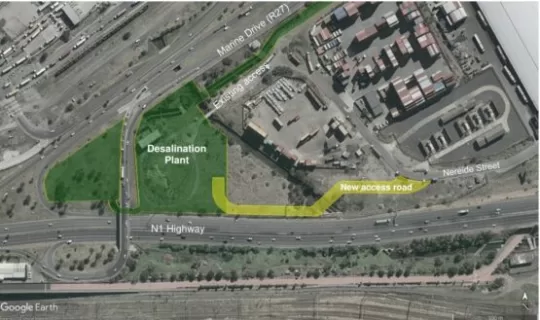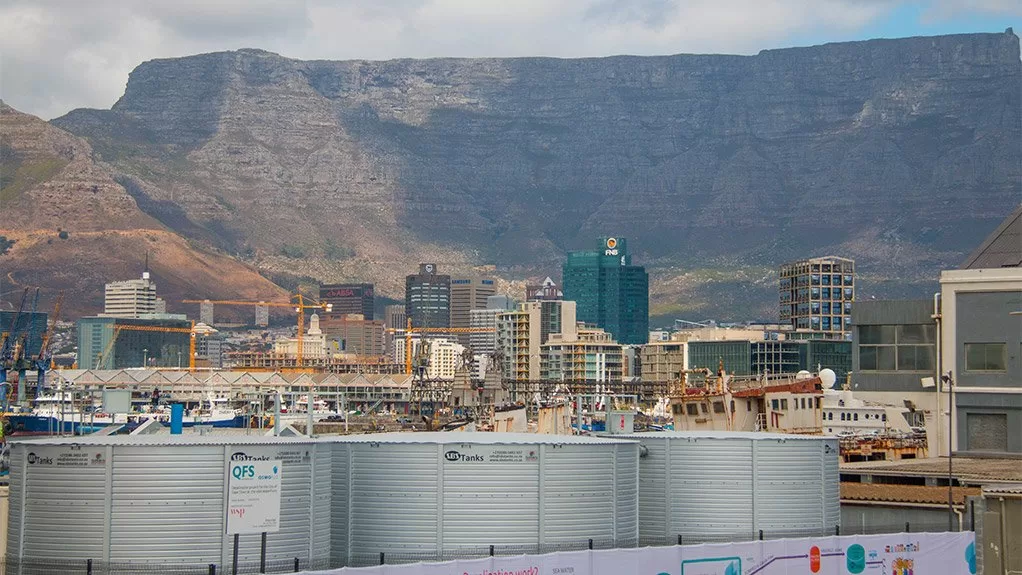South Africa’s city of Cape Town has noted its plans to commence the construction of a permanent desalination plant. Budgeted at $22 million, the plant is expected to be located in Paarden Eiland with commencement on the project set for 2026. Moreover, it is expected to be operational by 2030 if the plan receives all the necessary regulatory approvals. This is according to a draft scoping report prepared by Cape Town-based engineering firm Zutari. The firm was appointed to mandate the necessary environmental impact assessments of the proposed desalination plant.
The identified site for construction of the plant is one that has been acknowledged as ideal. Paarden Eiland is a light industrial area in Cape Town and is adjacent to a container staging area. The staging area belongs to the Transnet National Ports Authority (TNPA) near the N1 and R27 highway interchange. The proposed plant is expected to produce between 50 million and 70 million liters of water daily. Furthermore, it is part of the city’s broader strategy to secure water supply for a growing population.
Project Factsheet
Location: Cape Town
Capacity: 50 million to 70 million liters of water daily
Project duration: 6 years
Cost of Project: US$22 Million
The Significance of Cape Town’s Desalination Plant
Once operational, Cape Town’s desalination plant is expected to significantly facilitate in ensuring water security. By 2030, the city seeks to ensure 300 million liters of extra water supply from various sources, including water desalination. It also includes water reuse through purified recycled wastewater and extracting groundwater by drilling boreholes and tapping springs. This was noted by Zahid Badroodien, mayoral committee member for water and sanitation. Badroodien noted that desalination is a critical part of the city’s action plan to meet demand. “Water and sanitation investment now makes up 42% of Cape Town’s R120 billion infrastructure pipeline in ten years,” he noted.

The city has witnessed significant population growth in the past four years. One of the reason is migration of residents from other provinces, which has necessitated for other ways to meet water demand. Other than meeting the increased water demand, the city also needs to consider climate change. Occurences of drought may put pressure on the Western Cape Water Supply System, comprising six major dams. The desalination plant will supplement water schemes by being connected to several pipelines.
Also read:
South Africa begins construction of waste disposal facility in Cape Town
The State of Affairs Regarding the Water Security and Supply in Cape Town
Cape Town has been carefully monitoring water supply and usage since the threat of a ‘Day Zero’ scenario at the beginning of 2018. The event would have seen Cape Town as the first major city in modern world to run out of water, hence the need for diverse options. Officials are committed to avert the situation from becoming a reality by implementing Cape Town’s desalination plant. Pre-feasibilty studies had already been conducted, considering over 40 potential sites to set up the plant. However, only two sites were named as preferable options.

The chosen area in Paarden Eiland for the first plant is on land that was reclaimed from the sea. According to the engineering firm’s report, the site generally carries low environmental sensitivity as it is in an industrial area and within the urban edge. Moreover, the site is close to existing electrical and potable water tie-in points, reducing linkage distances.
Also read:
Cape Town reveals proposed sites for new water desalination plants

Leave a Reply